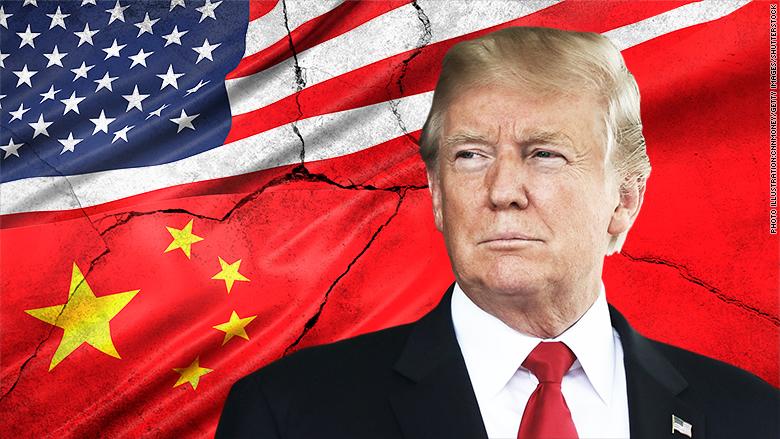Submitted by J.Theodore Schatt,
The news is full of President Trump’s, supposedly confidential, tax filings (from 25+ years ago). The only relevant current news I found was it seems that despite the losses on his tax returns, Trump’s lifestyle didn’t change because the losses were largely suffered on projects where the President was not utilizing his own money. Presumptively, that means that Trump the developer, put together deals in which he had an interest in the partnership, but contributed no actual money. Thus, when the loses from the partnership were apportioned for tax purposes, the future President Trump was able to claim that loss against taxable income that h earned on other projects. The bottom line appears to be that Developer Trump negotiated multiple deals in which he personally benefitted financially whether or not the project was ultimately successful. That no lose proposition appears to be exactly where the president finds himself in the current China trade negotiations.
To gain admission into the World Trade Organization, China followed a policy of privatization of state owned enterprises and reduction of tariffs and trade barriers. However, after gaining admission, China reversed course. The result was inequality in trade that permitted China’s economy to expand rapidly. The more economic power China obtained, the more China engaged in the theft of intellectual property. For years the accepted rationale has been that these are simply the terms under which China’s market is open for business and there is very little that can be done to change the situation.
Upon assuming office, the Trump Administration went to work on the China problem. On March 22, 2018, the Trump Administration announced its intention to apply tariffs on Chinese goods due to Chinese theft of US intellectual property. The Trump Administration has imposed a 25% tariff on 818 categories of goods imported from China worth a total of $50 billion, a 10% tariff on another $200 billion worth of products and recently announced its intention to up that 10% to 25% when the Chinese walked back from commitments previously made to the Trump Administration while at the bargaining table. Critics of the administration have alternatively called the tariffs a mistake because of their impact upon the global economy and a missed opportunity because the trade negotiations will not go far enough to fundamentally alter the communist nature of China’s economic model. The critics seem to miss that during the tariffs the US economy has expand rapidly compared to what the Obama Administration described as “the new normal” while China’s economy has suffered its slowest growth in almost 30 years.
Think about that for a moment. Impartial economic indicators suggest that with tariffs in place, in the absence of a trade deal, the United States is in a better economic posture than China. Thus, one can assume, if a trade deal is agreed upon by this Administration it will at a minimum address the theft of US intellectual property and inequitable trade that caused this Administration to take action when others had simply shrugged their shoulders. Thus, much like Developer Trump, the United States finds itself in a position to benefit regardless of whether or not trade negotiations are ultimately successful.
When evaluating the Trump Administration’s dealings with China, it is necessary to understand that for the first time in a very long time, the President of the United States is flexing the nation’s economic might to achieve strategic foreign policy goals instead of relying upon military might. Economic sanctions on Venezuela, Iran and North Korea are having clear and devastating effects on those rogue regimes. But economic sanctions are only one end of flexing economic might. North Korea was shown a film highlighting the economic benefits it could expect from foreign investment if it were to agree to denuclearize. Iraq, weary of US promises since the Obama Administration abruptly withdrew troops and left a power vacuum filled by ISIS and Iran, recently received an economic commitment from the US to assist in making Iraq energy independent from Iran through construction of power grid connections to other neighbors. Moreover, Turkey’s citizens recently handed President Erdogan’s party electoral loses based upon a sinking economy that is a direct result of the improvement of the US economy and Erdogun’s inability to address the issues due to his strained relationship with the United States.
It may be Secretary Pompeo, the ghost of Secretary Tillerson or President Trump himself, but someone in the Trump Administration is wielding the economic might of this country as a foreign policy tool in a manner that has not been effectively utilized by prior administrations. Considering the costs associated with flexing a strong economy vs. flexing a strong military the country is again put in the position where it cannot lose regardless of whether the Iranian and Venezuelan people overthrow their corrupt governments, whether North Korea disarms or Iraq chooses to distance itself from Iraq.
It’s a Trump pattern that is apparently documented by completely irrelevant tax returns. While the Obama Administration famously claimed the mantra “Don’t do stupid (Stuff)”. Maybe this Administration has stolen the line from the late great Al Davis and his Raiders: “Just win, baby.”
via ZeroHedge News http://bit.ly/2VSdiU9 Tyler Durden
